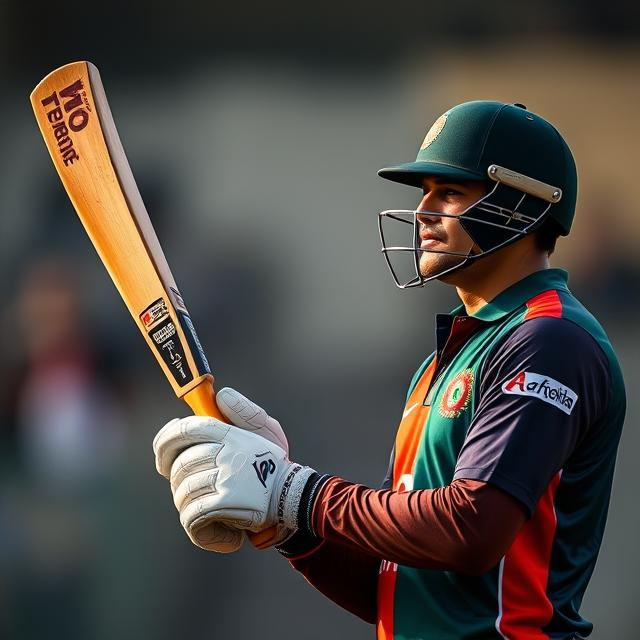Pakistan Cricket Team Captaincy in Tests: A Journey Through Leadership

Pakistan Cricket Team Captaincy in Tests: A Journey Through Leadership
From legendary figures to modern-day heroes, Pakistan’s Test cricket captaincy has been a captivating narrative of resilience, triumph, and occasional adversity. This article delves into the fascinating journey of Pakistan’s Test captains, exploring their leadership styles, strategic approaches, and the impact they’ve had on the team’s overall performance.
Unveiling the Leaders: A Glimpse into Pakistan’s Test Captaincy History
Pakistan’s journey in Test cricket has seen a succession of influential captains, each leaving their mark on the team’s history. From the early days of the game to the present, these leaders have faced unique challenges, navigated fluctuating performances, and shaped the narrative of Pakistani cricket. The following sections will explore the key aspects of this fascinating journey, highlighting the leadership styles and the impact of each captain.
Early Years and Establishing a Foundation
Pakistan’s early Test cricket saw a mix of captains, each contributing to the team’s nascent development. The early captains often faced immense pressure, navigating the complexities of international cricket with limited resources and experience. Their contributions laid the foundation for the future successes of the team.
Early Captains’ Impact on the Team: These captains fostered team unity, and developed the rudimentary strategies required in test cricket. Often, these captains had to be all-rounders, leading from the front while simultaneously contributing to the team’s performance on the field.
The Rise of Legends: Shaping the Future
Pakistan produced a series of iconic leaders who brought a unique blend of skill and strategic acumen to the captaincy role. These leaders had to lead a team through thick and thin, inspiring their teammates to deliver their best, often in trying circumstances. The era saw a transition in styles, reflecting the changing dynamics of international cricket.
Notable Achievements & Challenges Faced by Early Captains
These captains often faced the challenges of limited resources, particularly in the early days of Pakistan’s cricketing history. However, they managed to achieve remarkable feats that put Pakistan on the map as a cricketing force to be reckoned with. Their leadership was crucial in navigating complex situations, instilling discipline and determination in the team.
Contemporary Era: Navigating Modern Cricket
The contemporary era of Pakistan’s Test cricket captaincy has witnessed a mixture of success and setbacks. Captains have been tasked with adapting to evolving strategies and technological advancements in the game. The pressure has only amplified with the scrutiny and expectations associated with Pakistan’s cricketing standing in world cricket.
Modern Approaches to Leadership
Today’s Test cricket captains are required to possess a multifaceted skill set. They need tactical prowess, strong communication skills, and an ability to handle pressure and adversity. Leading a diverse squad of talented players with varied backgrounds requires the utmost compassion and respect. Effective motivational strategies and interpersonal skills are critical to maintaining a cohesive team atmosphere.
Strategic Approaches: From Tactical Innovations to Contemporary Methods
Modern captains analyze opponent strengths and weaknesses meticulously, developing comprehensive plans that cater to the team’s own strengths. The influence of data and analytics in decision-making is also increasingly prominent in Test matches, allowing captains to anticipate challenges and maximize opportunities.
The Role of Support Staff
A successful Test captain is not merely a figurehead; they function as part of a broader support system. The coaching staff and team management play a crucial role in providing the captain with the necessary support, advice, and resources to excel. This collaboration helps streamline decision-making and ensure consistent team performance.
Leadership Styles: A Diverse Range
Pakistan’s Test cricket captains have demonstrated diverse leadership styles. Some prioritize tactical planning, others focus on inspiring the team through motivation and encouragement. Successful captains often have a unique blend of these approaches, tailored to the specific needs of the team and the circumstances of each match.
The Impact on the Team’s Performance
Captaincy is a key determinant of a team’s overall performance in Test cricket. Inspired leadership can drive a team to victory, while struggles with leadership can hinder performance and dampen morale. The influence of a captain is evident in the team’s overall approach, discipline, and strategic decision-making.
Examining the Captains’ Impact on Team Performance
A successful captain often leaves a lasting legacy. Their leadership skills, strategic decisions, and motivational approaches can inspire future generations of cricketers. Their impact transcends specific matches, shaping the team’s culture and identity.
Conclusion: The Enduring Legacy of Pakistan’s Test Captains
The story of Pakistan’s Test cricket captains is a testament to the enduring spirit of Pakistani cricketers and the challenges that come with leading a national team through fluctuating fortunes. From humble beginnings to their impact on modern cricket, each captain has carved a unique place in the annals of Pakistani cricket history.
The contributions of these leaders showcase the importance of adaptable leadership and the significant role it plays in shaping the success of a team. The leadership styles and strategic choices of Pakistan’s Test captains have had a lasting impact on the nation and the sport of cricket worldwide. This article serves as a tribute to their tireless commitment to the game.
Looking ahead, Pakistan’s cricket team will continue to need effective and adaptable leaders, as the game continues its ever-evolving journey. The legacy of Pakistan’s Test cricket captains is one that will inspire future generations of players and coaches for years to come.